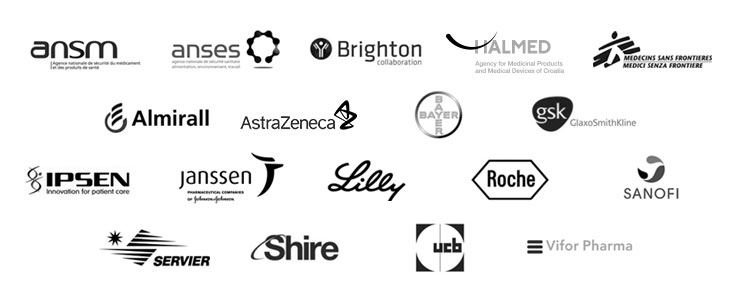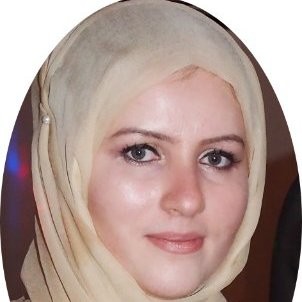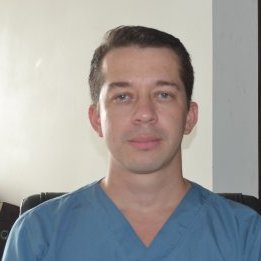Quality Indicators
Key figures (Sep 2011 - Sep 2025)
Read more
Read more
Read more
Some former students' testimonials
The practical experience and case study approach makes it a real-world situation adaptable to my current professional life. This is most appreciated. [...] I have recommended and will definitely continue recommending Eu2P!
Full quote
I couldn’t think of a better programme than Eu2P when it came to excelling in career with broader horizon and widening my knowledge of drug affairs.
Full quote
The concept of studying with peers from industry practitioners, regulators and academia is a unique feature of the Eu2P program, which allows me to apply the knowledge seamlessly in my professional works. Highly recommended and appreciated.
Full quote
I will definitely recommend training programs within the Eu2P platform and I am looking forward to my next course!
Full quote
Thanks so much for this opportunity, studying at Eu2P is one of the best experiences in my life, it was the training that I needed to get a high-quality education.
Full quote
I would strongly recommend the Master diploma for those seeking deep knowledge in pharmacovigilance and pharmacoepidemiology
Full quote
Organisations trusting us for staff competency development

Education Excellence
- Job-oriented courses
- Made flexible
- With genuine academic quality
- Real-life practices inputs from insiders such as the regulatory and industry members of the Eu2P consortium and from international guest experts invited to share experience and interact with students
- Course compliance with the core competencies and knowledge requirements such as WHO-ISoP requirements for pharmacovigilance and ISPE requirements for pharmacoepidemiology and with the imi-train competency profiles in Drug Safety Sciences
- Inclusion of last research and methodologies advances in collaboration with the IMI PROTECT stakeholders
- The full online courses approach to ease professional study-time management has been awarded a trophy for higher education innovation (Educatec-Educatice 2012)
- Modular and time flexible courses comply with lifelong learning and continuing professional development as described by the LifeTrain initiative
- Academic standards and quality of the programme are ensured by the Eu2P Executive Board including academic representatives of the 6 Eu2P degree awarding universities
- Compliance with main quality items of ENQA's report on "Standards and Guidelines for Quality Assurance in the European Higher Education Area"
- Cross quality review of assessments between Eu2P academic partners
- Independent external examination of programme assessments and equity
Recommendations & collaborations

Eu2P training programme is recommended by the ENCePP as important in building future capacity in the European Union to undertake high quality, scientifically independent research
.
Read more

The North America chapter from the International Society of Pharmacovigilance (NASoP) has collaborated with Eu2P to build a new education program tailored to North American medicines-stakeholders, the American Program in Pharmacovigilance Am2P.
Read more

The Eu2P academic partners have been selected to design and develop the Pharmacoepidemiology and Real-World Evidence (RWE) online course programme within the EMA Big Data training curriculum for both EMA and EU Regulatory network members.
Read more

IMI PROTECT project and Eu2P fostered collaboration in postgraduate training and exchange of trainees between pharmacovigilance and pharmacoepidemiology centres. PROTECT has also provided pharmacoepidemiological research findings and new methodology inputs for Eu2P teaching materials and programmes.
Read more

Eu2P training programme has been awarded a PharmaTrain Centre Recognition following a quality assessment of its Master Education and Training programme by The PharmaTrain Federation.
Read more

IMI EMTRAIN's On-course®, the European portal of biomedical postgraduate education and training resources has indexed Eu2P courses and provides a Eu2P course filter in its Advanced Search feature.
Read more

IMI SafeSciMET has collaborated with Eu2P to adapt course modules into a blended learning format on the Eu2P eLearning platform under the collaborative framework of the imi-train project.
Read more

IMI European platform for education and training in the medical, biomedical and pharmaceutical sciences, imi-train, promotes Eu2P academic postgraduate programmes as well as CPD training in pharmacovigilance and pharmacoepidemiology.
Read more
Publications & media highlights
- Training and Capacity Building Opportunities in Pharmacovigilance (in Special Issues in Pharmacovigilance in Resource-Limited Countries).
Palin K, Liège S, Naboulet C, Salvo F.
In: Ahmad, S.R. Special Issues in Pharmacovigilance in Resource-Limited Countries. Springer Nature Singapore (2025). - The American Program in Pharmacovigilance (Am2P): a new accredited online training program in pharmacovigilance and pharmacoepidemiology.
Kugener V, Palin K, Salas M, et al.
Therapeutic Advances in Drug Safety (2024). - Collaborative Approaches to Establishing and Implementing Pharmacovigilance Systems. .
Edwards, B., Caro-Rojas, A.
In: Jose, J., Cox, A.R., Paudyal, V. (eds) Principles and Practice of Pharmacovigilance and Drug Safety. Springer, Cham (2024). - Current career situations of Chinese pharmacovigilance professionals working for pharmaceutical companies: an exploratory survey.
Tang et al.
BMC Health Serv Res (2023). - Training Opportunities for a Career in the Pharmaceutical and Biomedical Industry.
Thomas, J.R.
In Career Options in the Pharmaceutical and Biomedical Industry. Springer, Cham.(2023). - European Regulatory Science and Regulatory Science Expert Training Project .
Shin et al.
Korean Journal of Clinical Pharmacy (2021). - A Multidisciplinary Approach in Pharmacovigilance Awareness: ISoP Egypt Chapter's MedSafetyWeek Experience.
Rostom et al.
Drug Safety (2021). - A systematic review on learning outcomes of pharmacovigilance issues: Undergraduates of pharmacy.
Pires C.
International Journal of Educational Research (2021). - Global Pharmacovigilance, challenges, and future considerations: West globe and East globe.
Gadhade JS, Hiray RS.
Journal of Pharmacovigilance and Drug Research (2021). - Drug safety academic programme expands to North America.
Innovative Medicines Initiative (2021). - For research projects to leave a legacy, long-term vision is vital.
Innovative Medicines Initiative (2021). - An Update of the North American Chapter of the International Society of Pharmacovigilance (NASoP).
Gossell-Williams, M. et al.
Drug Safety (2021). - Socio-Economic Impact Report on IMI1 projects.
Centre for Innovation in Regulatory Science (2021). - Chapter 23 - Translational safety medicine.
Ernst et al.
Principles of Translational Science in Medicine (Third Edition 2021). - Harmonizing and improving European education in prescribing: An overview of digital educational resources used in clinical pharmacology and therapeutics.
M. J. Bakkum et al.
British Journal of Clinical Pharmacology (2020). - Pharmacovigilance: Challenges in Getting From Here to There.
P. Beninger
Clinical Therapeutics (Dec. 2018). - Pharmacovigilance: Our experience in Aden.
M. Alshakka and W. Badulla
World Journal of Pharmaceutical Sciences (Oct. 2018). - A Review of the Contributions of Cross-discipline Collaborative European IMI/EFPIA Research Projects to the Development of Replacement, Reduction and Refinement Strategies.
S. Wolfensohn
Alternatives to Laboratory Animals (May 2018). - Enhancing Pharmacovigilance Capabilities in the EU Regulatory Network: The SCOPE Joint Action.
A. Radecka, L. Loughlin, M. Foy, M. Viana de Ferraz Guimaraes, V. Macolic Sarinic, M. Dimov Di Giusti, M. Lesicar, S. Straus, D. Montero, J. Pallos, J. Ivanovic, J. Raine
Drug Saf (2018). - What Future Healthcare Professionals Need to Know About Pharmacovigilance: Introduction of the WHO PV Core Curriculum for University Teaching with Focus on Clinical Aspects.
R. van Eekeren, L. Rolfes, A.S. Koster, L. Magro, G. Parthasarathi, H. Al Ramimmy, T. Schutte, D. Tanaka, E. van Puijenbroek, L. Härmark
Drug Saf (2018). - 'All this wouldn’t have been possible without IMI' - an interview with Eu2P project coordinators.
IMI JU in Success stories from projects, 01 February 2018. - Carrying the torch for medical innovation.
IMI JU in IMI Results and Impact, 06 Octobre 2017. - Risk Communication in a Pharmacovigilance Environment.
P. Beninger
Clinical Therapeutics. 39, no. 4 (April 2017): 672–74. - An Introduction to Pharmacovigilance, 2nd Edition.
P. Waller, and M. Harrison-Woolrych
Wiley-Blackwell, April 2017. - Practical Implementation in Six Member States.
M. Kaeding, J. Schmälter, C. Klika. in Pharmacovigilance in the European Union : Practical Implementation across Member States, edited by Wiesbaden: Springer, February 2017. - البرنامج الأوروبي في اليقظة الدوائية: درجة الماجستير في اليقظة الدوائية عن بعد [European programme in pharmacovigilance: distant pharmacovigilance Master programme]
هاجر علي [Hager Ali]
Egypt Scholars blog May, 2017 - From Face-to-Face training to blended learning in the postgraduate program SafeSciMET - a case study.
J.C. Vos, S. Dragovic, M. Jochimsen, J. Dirach, H. Foth, J. Wiese, O.J. Bjerrum
Eur. J. Pharm. Sci., 01 January 2017. - Opportunities and Challenges for Drug Development: Public–Private Partnerships, Adaptive Designs and Big Data.
O. Yildirim, M. Gottwald, P. Schüler and M.C. Michel
Front. Pharmacol., 06 December 2016. - Job and Career Opportunities in the Pharmaceutical Sector.
J.R. Thomas, C. van Schravendijk, L. Smit and L. Saso.
In Special Topics in Drug Discovery, edited by T. Chen and S.C. Chai, November 2016. - Elaboration et évaluation d’un site d’e-learning pour l’apprentissage de la recherche en médecine générale.
N. De Chanaud.
Thèse de Médecine Générale, 27 septembre 2016. - How can an adaptive training programme support change in organisational strategy?
K. Palin
Intrinsic Activity, 2016; 4 (Suppl. 1): A4.1 - Essential learnings: How do I begin...?
S. Mt-Isa
benefit-risk assessment, the blog around structured decision making in medicine, June, 2016 - Shaping Europe's Vision for Personalised Medicine.
The PerMed SRIA (Strategic Research and Innovation Agenda), Jul. 2015. - Structured Benefit–risk Assessment: A Review of Key Publications and Initiatives on Frameworks and Methodologies.
S. Mt-Isa, M. Ouwens, V. Robert, M. Gebel, A. Schacht, and I. Hirsch.
Pharmaceutical Statistics, May 2015. - European Initiatives for Better Training in Medicines Development.
M. Hardman
Journal of Medicines Development Sciences 1, no. 1 (May 2015). - Guide de Conception de Formation Ouverte et à Distance (FOAD) Dans Le Monde de La Santé.
Haute Autorité de santé, Apr. 2015. - The Innovative Medicines Initiative: an engine for regulatory science.
M. Goldman, N. Seigneuret, H.G. Eichler
Nat Rev Drug Discov. 2015 Jan;14(1):1-2. - Chapter 6 - How Can the Innovative Medicines Initiative Help to Make Medicines Development More Efficient?
M. Gottwald
In Re-Engineering Clinical Trials, 55–63. Elsevier - Academic Press, Jan. 2015. - Teaching Pharmacovigilance: The WHO-ISoP Core Elements of a Comprehensive Modular Curriculum.
J. Beckmann, U. Hagemann, P. Bahri, A. Bate, I.W. Boyd, G.J. Dal Pan, B.D. Edwards, et al.
Drug Safety, Aug. 2014, 1–17. - Practical Experience in Teaching Pharmacovigilance.
S. Evans, and I. Douglas
In Mann's Pharmacovigilance, 805–6. John Wiley & Sons, Ltd, Apr. 2014. - Eu2P: The First European Online Public–Private Joint Training Program in Pharmacovigilance and Pharmacoepidemiology.
K. Palin, C. Bataille, S. Liège, R. Schimmer, and A. Fourrier-Réglat
In Mann's Pharmacovigilance, 785–92. John Wiley & Sons, Ltd, Apr. 2014. - Bordeaux : L'Université Se Met Au Numérique.
Edition 12/13
France 3 Aquitaine. Feb. 2014. - Towards a Single VOICE for European Clinical Pharmacology: Proposals for Future Developments.
J.K. Aronson and G. Velo.
European Journal of Clinical Pharmacology 69, no. 11 (Nov. 2013): 1981–84. - La Formation à Distance 'Made in Aquitaine' Qui Intéresse Harvard.
Journal l'Aquitaine, journal d'information du Conseil Régional d'Aquitaine, Sep. 2013. - Prescrire juste, plutôt que juste prescrire.
M. Molimard, M.-C. Perault-Pochat, C. Funck-Brentano, M. Bardou, R. Bordet, and J.-L. Montastruc.
Le Monde.fr, Apr. 2013. - Regulatory Science: Researchers in the Pipeline.
A. Dance.
Nature 496, no. 7445 (Apr. 2013): 387–89. - Opening Industry-Academic Partnerships.
C. Tachibana.
Science, Apr. 2013. - Background Paper 7.4 Pharmacogenetics and Stratified Medicine.
S.J.H. Vijverberg, A.-H. Maitland-van der Zee.
From Priority Medicines for Europe and the World Project "A Public Health Approach to Innovation" by the World Health Organization, Mar. 2013. - Enseignement : Bordeaux Segalen Tient La Distance.
H. R.-V.
Sud-Ouest Feb. 2013. - Continuing Medical Education and Professional Development in the European Union.
H. Silva, F.R. Bühler, B. Maillet, H. Maisonneuve, L.A. Miller, A. Negri, and P.D. Stonier.
Pharmaceutical Medicine 26, no. 4 (Dec. 2012): 223–33. - Better Comms in Meds.
K. Palin, C. Bataille, S. Liège, E. Swain, A. Fourrier-Réglat, and R. Schimmer.
Public Service Review: Health and Social Care, no. 34 (Dec. 2012): 71.
- TV report on Eu2P programme
Emission Modes d'Emplois.
TV7 Bordeaux, Nov. 2012. - Pharmacovigilance Medical Writing: A Good Practice Guide
J. Orleans-Lindsay.
Wiley-Blackwell, July 2012 - Conference Scene: 5th Anniversary Meeting of the European Research Network Pharmacogenetics/Pharmacogenomics.
J.C. Fox, A. Daly, I. Cascorbi, A. Alfirevic, H. Linden, and A.-H. Maitland-van der Zee
Pharmacogenomics Vol. 13, No. 7 (May 2012): 747-749. - European Initiative towards Quality Standards in Education and Training for Discovery, Development and Use of Medicines.
H. Klech, C. Brooksbank, S. Price, P. Verpillat, F.R. Bühler, D. Dubois, N. Haider, et al.
European Journal of Pharmaceutical Sciences 45, no. 5 (Apr. 2012): 515–20. - The Innovative Medicines Initiative: A European Response to the Innovation Challenge.
M. Goldman.
Clinical Pharmacology & Therapeutics 91, no. 3 (Mar. 2012): 418–25. - Cobert's Manual of Drug Safety and Pharmacovigilance.
B. Cobert.
Jones & Bartlett Learning 2011.
My experience at Eu2P was awesome! An absolutely very rich content with every sector experience, from the academia to industry to regulatory to healthcare providers to reimbursement to patient representative organizations to the consumer. Every perspective to a case is explored. The practical experience and case study approach makes it a real-world situation adaptable to my current professional life. This is most appreciated. The team at the Eu2P Central office are great minds and always available to assist where necessary making the programme doable with its tough content and demands. I have recommended and will definitely continue recommending Eu2P!
I couldn’t think of a better programme than Eu2P when it came to excelling in career with broader horizon and widening my knowledge of drug affairs. I envisioned the whole system with a totally new perspective and look forward to improving one in my homeland as well. The course is well designed, covering all necessary fields and timely response from most (if not all) of the mentors. Eu2P management is very cooperative and addresses its students’ issues amicably. I found some best mentors-for-life undoubtedly (especially Pr. Albert Figueras) and would like to accredit them for polishing one of my most desirable skills: Scientific Research!!
I have really enjoyed the master programme study with Eu2P on a part-time basis, which allows me to enhance both my theoretical and practical knowledge in pharmacovigilance and epidemiology fields alongside my heavy professional duty as medicine development director. The concept of studying with peers from industry practitioners, regulators and academia is a unique feature of the Eu2P program, which allows me to apply the knowledge seamlessly in my professional works. Highly recommended and appreciated.
I am delighted I came across Eu2P Program offerings. Actually when I came across it I started asking from some previous students testimonials through Linkedin search , and they told me how the program really affected their careers in a positive way, so I decided to start with the “Medicines benefit assessment” training domain and selected the “Methods in clinical research and pharmacoepidemiology and in the assessment of the efficacy of medicine D2M3” training module, as I believe it can give me a wider review of this area and can benefit my career. The training was engaging and deeply related to my work. I liked the further recommended reading topics from different literature sources and I also liked the “WIKI” part as it provided a collaboration space with colleagues and also gave me an option to study my colleagues' points of views regarding the topics studied. As I am a full-time employee it was somehow challenging to keep up with the syllabus in my free time but overall the workload was fine. I will definitely recommend training programs within the Eu2P platform and I am looking forward to my next course!
Thanks so much for this opportunity, studying at Eu2P is one of the best experiences in my life, it was the training that I needed to get a high-quality education. I enjoyed being part of the master program. I have to thank all of the central office collaborators by it. I really recommend to everyone who wants to get a high-quality training in pharmacovigilance and Pharmacoepidemiologic. Thanks.
The Eu2P provided me with unparalleled opportunities to learn from experts in the field as it brought together experts from academia, industry and regulatory agencies. It was an eye-opening experience where it introduced me to the various practices within the field of pharmacoepidemiology and pharmacovigilance. The online format and the great support provided by the instructors and the Eu2P office made it a rewarding experience. I greatly appreciated being able to choose among the six specialisation tracks to choose what fitted my needs. I would strongly recommend the Master diploma for those seeking deep knowledge in pharmacovigilance and pharmacoepidemiology.

 LOG IN OR SIGN UP TO "MY Eu2P"
LOG IN OR SIGN UP TO "MY Eu2P"











